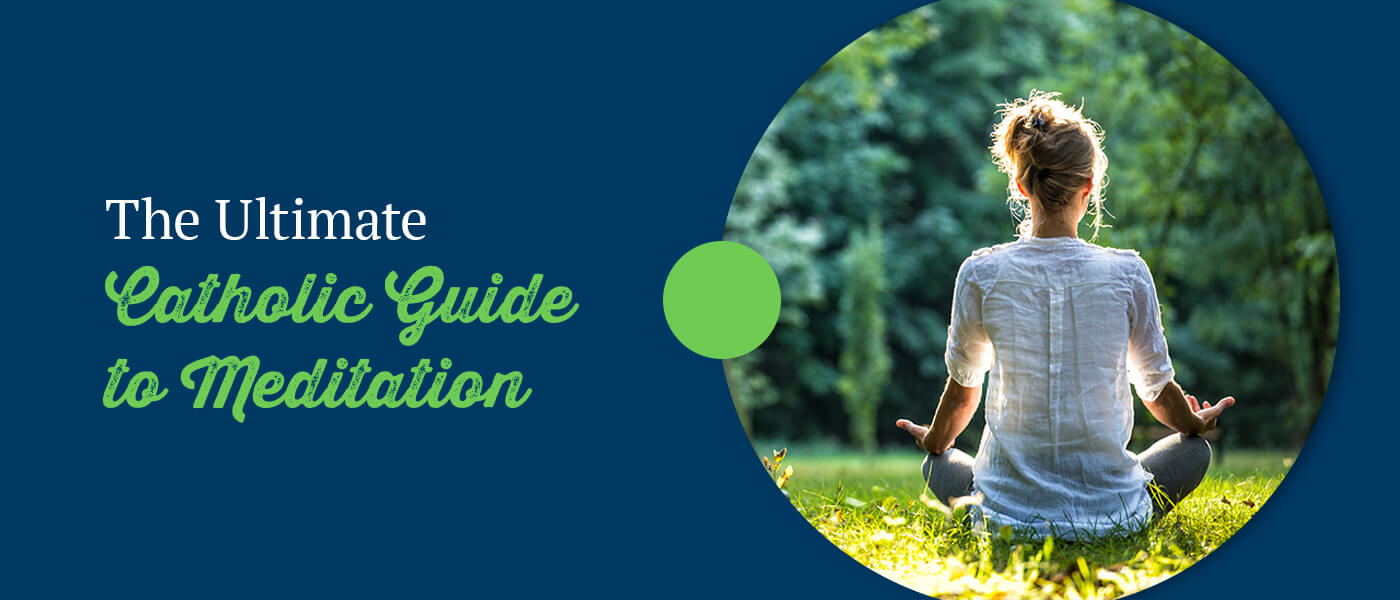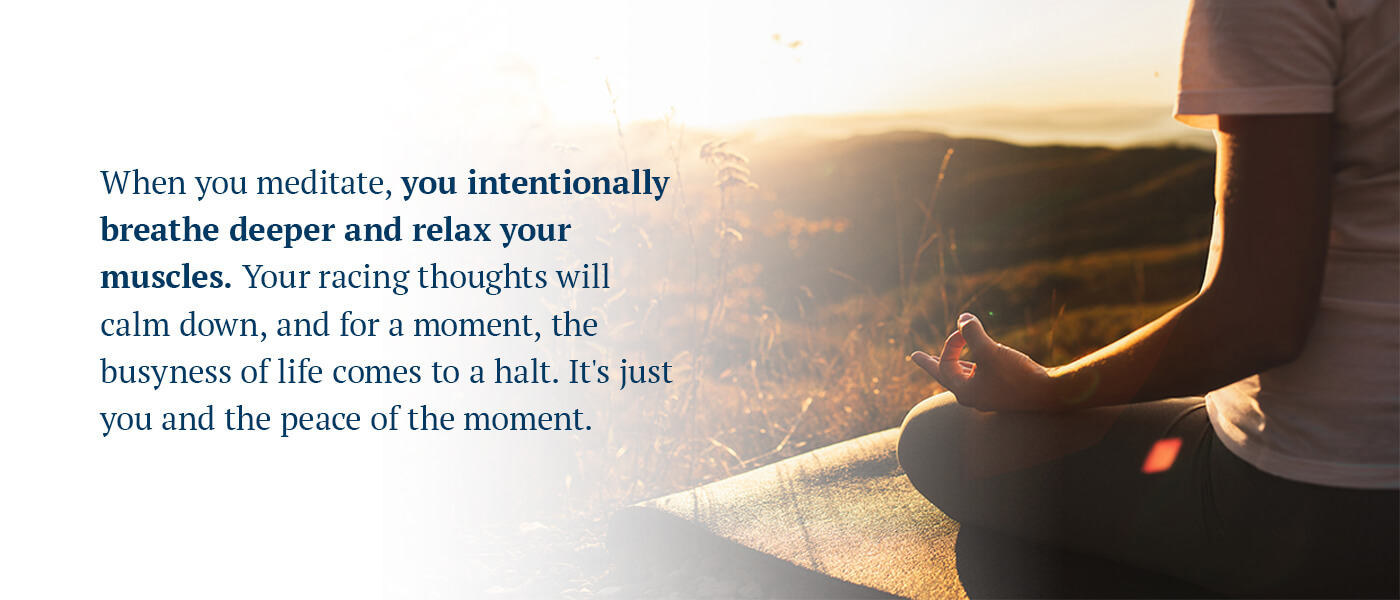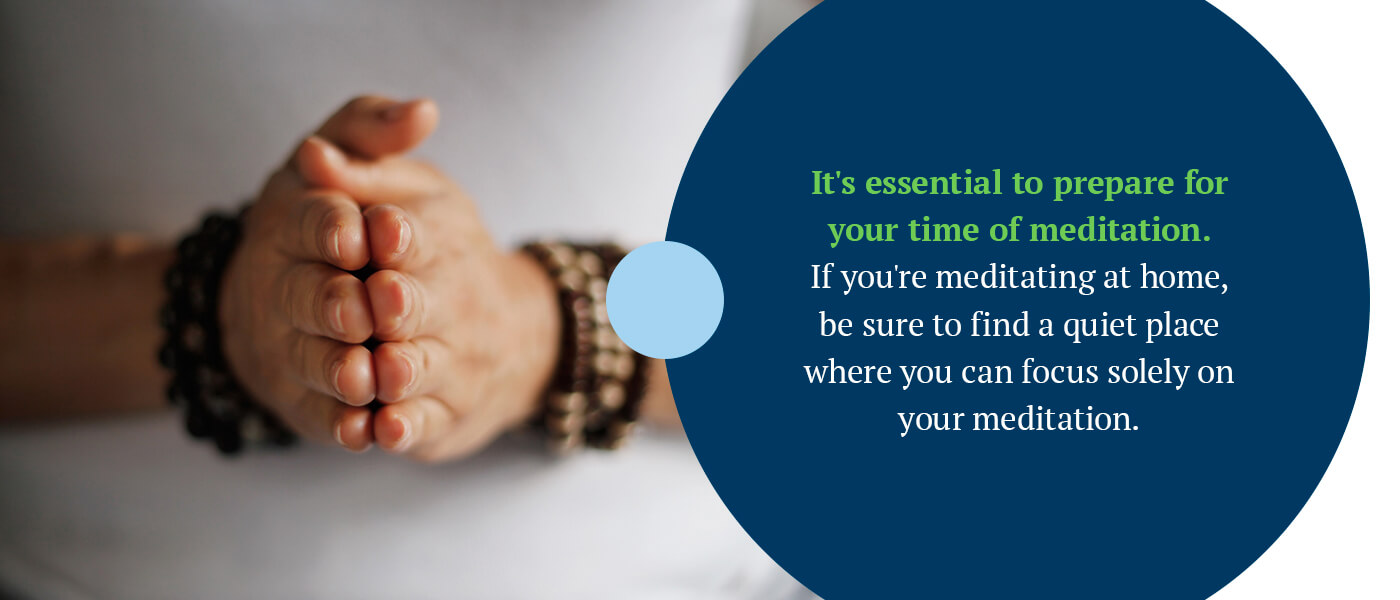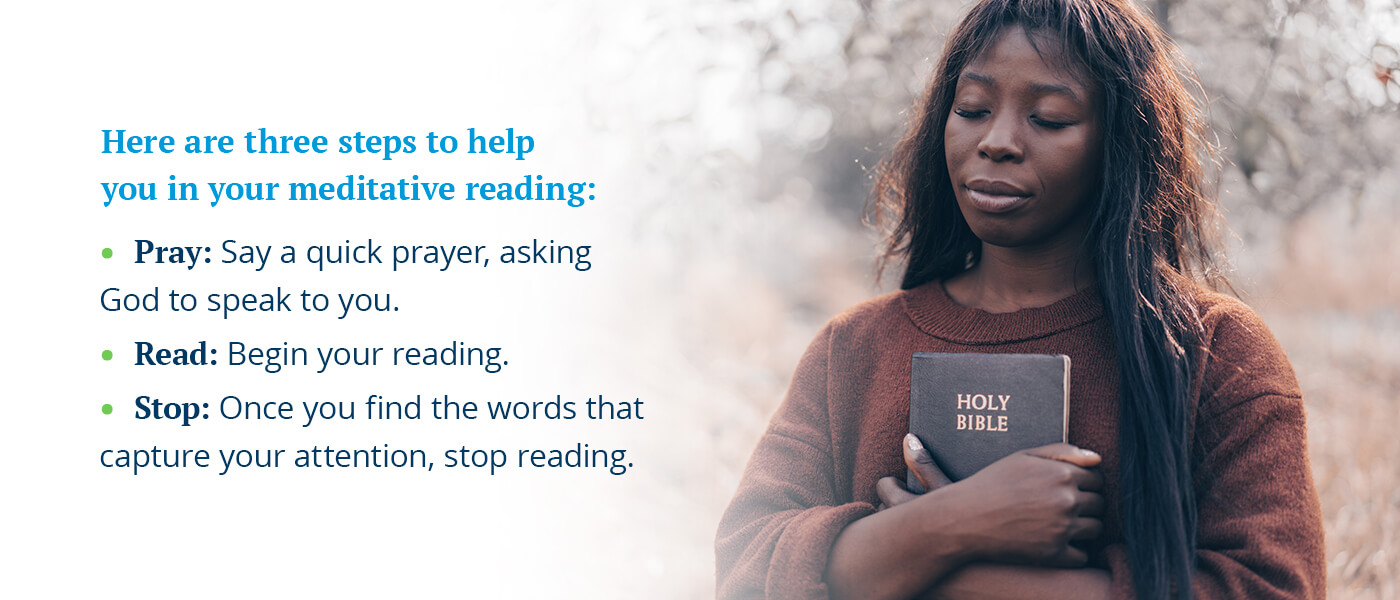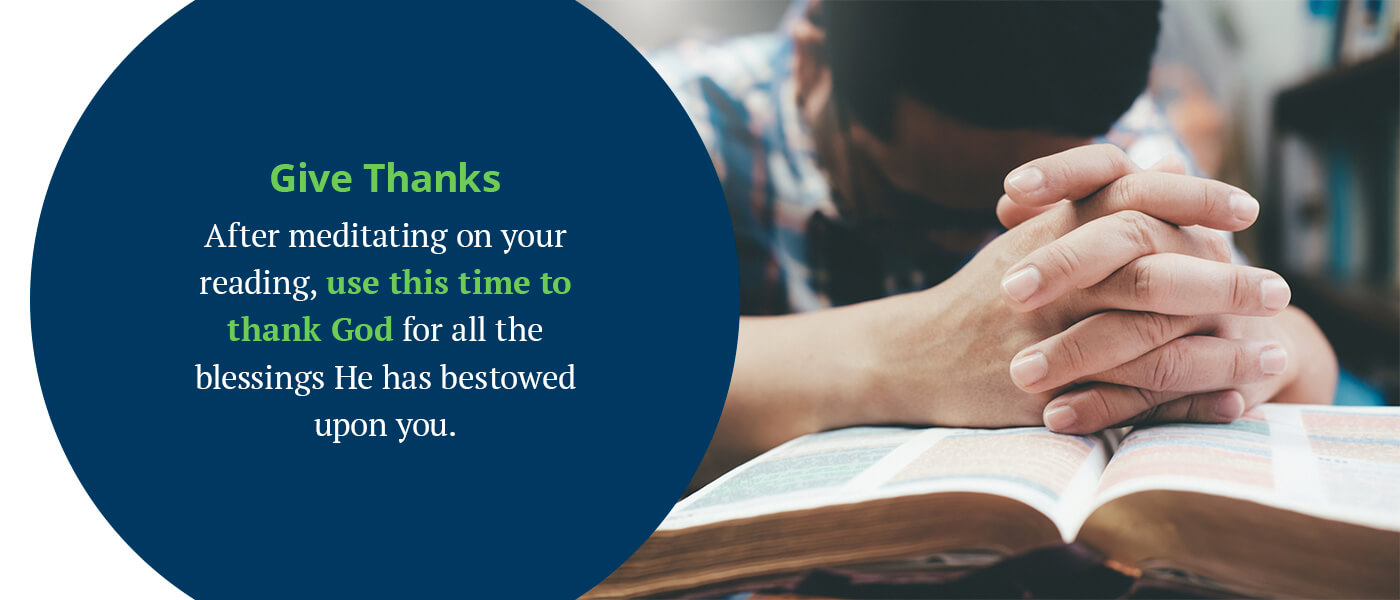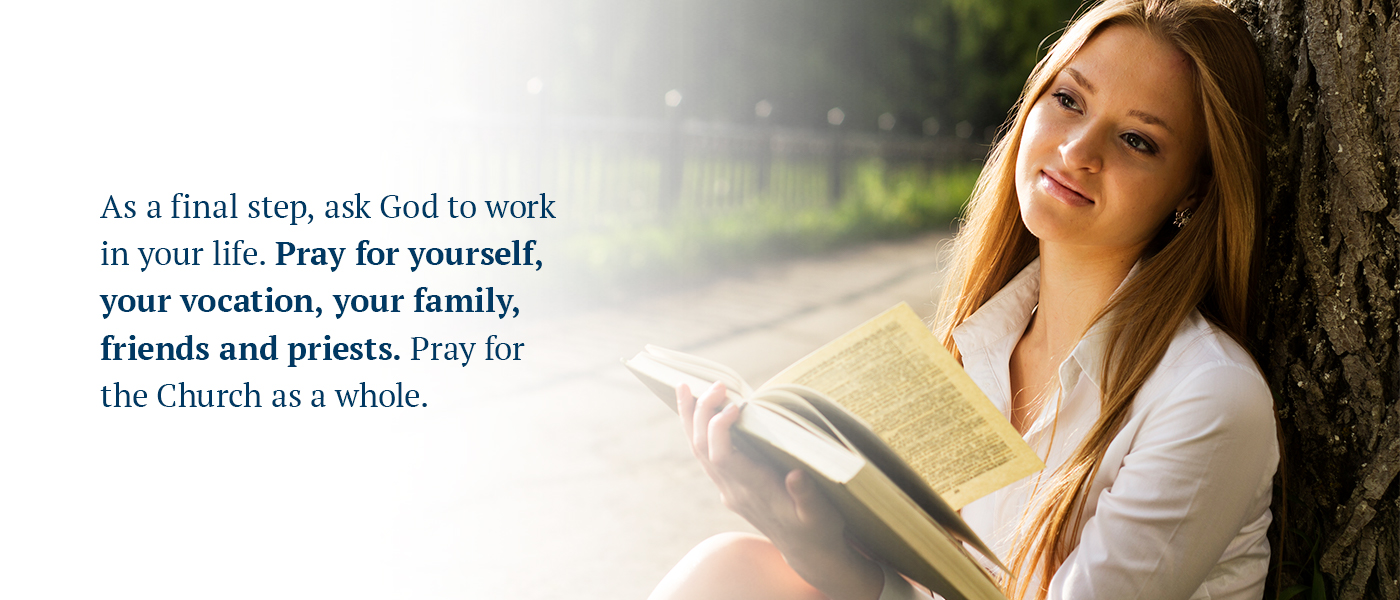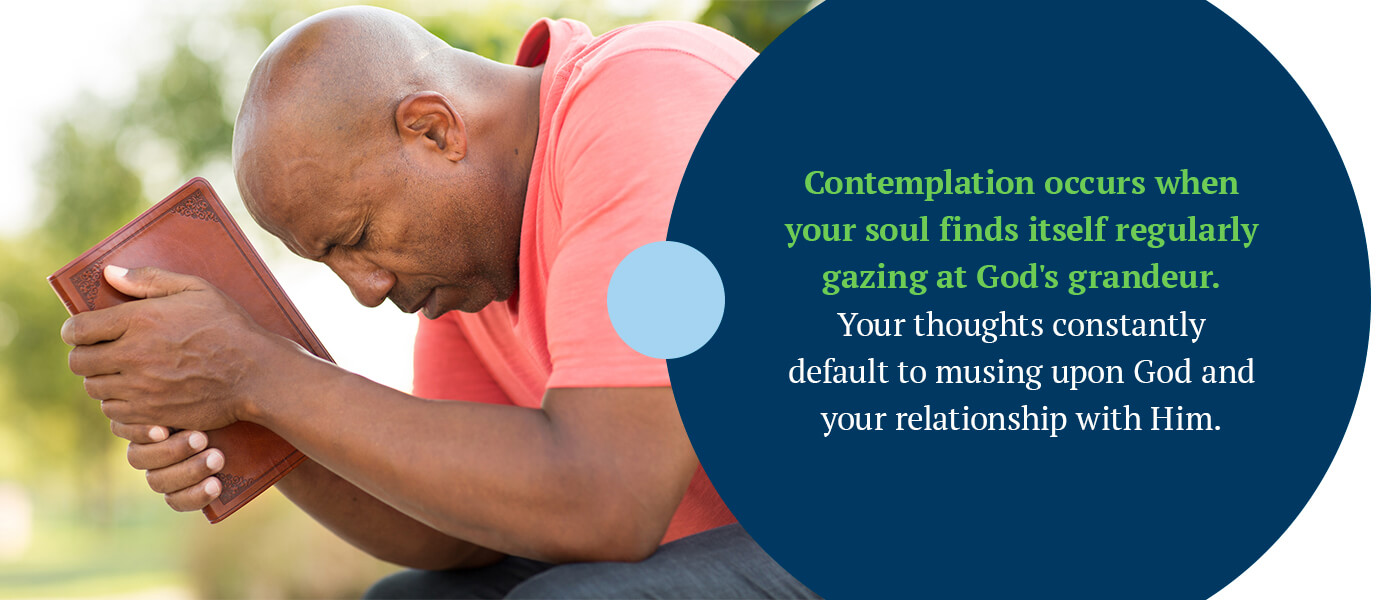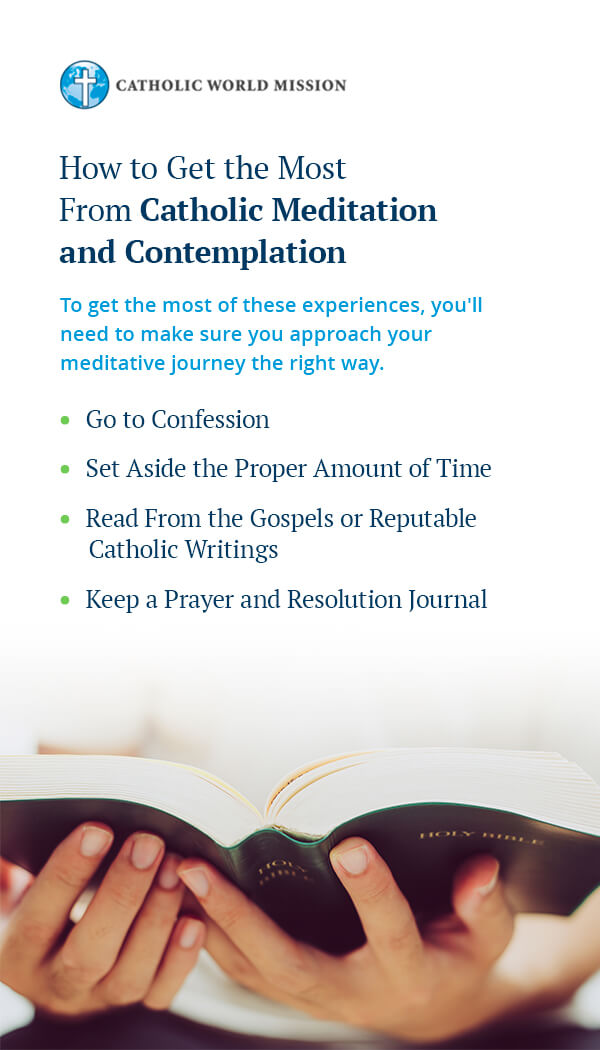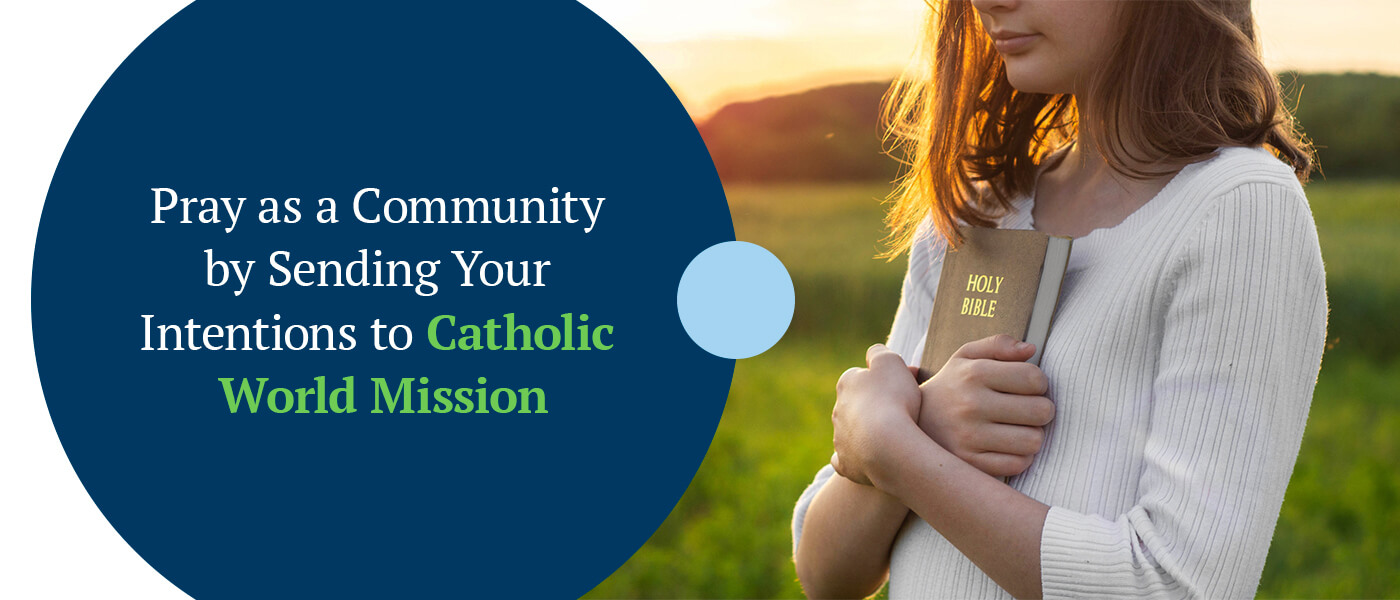The Ultimate Catholic Guide to Meditation
Being religious has many connotations. For some, it’s going to church or mass every week. For others, a religious life includes volunteering at the local soup kitchen or homeless shelter. Some people embrace a life of poverty and devote themselves to living life entirely dependent on Christ. In contrast, others pursue successful careers and donate thousands or even millions of dollars to charity.
All these examples are religious lifestyles people can notice outwardly. But as a Catholic, the inward life shared between you and God is a relationship you must actively foster and devote time to. In this guide, we’ll help you understand how to meditate with God and discover what traditional Catholic meditation is.
What Is Meditation and How Does It Benefit Catholics?
At its most basic definition, meditation is a method that helps people relax. When you meditate, you intentionally breathe deeper and relax your muscles. Your racing thoughts will calm down, and for a moment, the busyness of life comes to a halt. It’s just you and the peace of the moment.
Let’s face it — life can be pretty hectic at times. Some people are unaware of how stressed they are until they finally have a moment of peace and quiet. But the truth is that you’re only human. It’s only through engaging in a healthy dose of self-care that you can care for others. Meditation is a way that people around the world care for themselves.
Meditation deactivates the sympathetic nervous system, one of the two divisions of the autonomic nervous system. The sympathetic nervous system is the part of you that controls unconscious operations like sweating and other functions that prepare your body for physical activity. Of these functions, the most noticeable when it kicks in is what’s called the “fight or flight” response.
Your body can enter fight or flight mode for various reasons. It can result from perceived dangers, which are dangers that only exist in your mind. These can stem from past traumas or self-made worries. Your body can also enter a state of fight or flight from actual, present circumstances that happen unexpectedly.
The purpose of meditation is to help you exit from this state of fight or flight. Your body and mind will calm down, and you’ll be able to think more clearly again. But it doesn’t stop there. You’ll see in the next section how Catholic meditation differs from traditional meditation. For now, know that meditation is a means of calming down and finding peace during life’s stressful moments.
Catholics are susceptible to the stresses of life like everyone else. Meditation has many benefits for Catholics, including the following:
- Reduced anxiety: Whether your anxiety stems from a real or perceived threat, Catholic meditation can help you regain your confidence. Remember that God’s will for you is good, as He promises in Jeremiah 29:11. He is with you every step of the way.
- Greater awareness of the present moment: Meditation can help recenter you. Life is busy and can have you going from one thing to the next without a moment’s pause. Eventually, you could feel like your life is out of control. Carving out time to meditate can help ground you so you’re more invested in your current moment. Trust that God has control over your circumstances, according to Proverbs 19:21.
- Increased sense of peace and wellbeing: When you meditate in a way that draws you closer to God, you can feel greater peace knowing that you’re spending time with Him. Be thankful for your relationship with God and let the peace of Christ found in Colossians 3:15 guide your heart.
But are there different types of Catholic meditation? What is Catholic meditation like compared to other forms of meditation? To reap the benefits listed above, you need to be sure you’re meditating properly and understand how it differs from traditional meditation.
How Does Catholic Meditation Differ From Traditional Meditation?
When talking about religion in a broad sense, the topic of meditation will likely come up. Even non-church-goers will sometimes mention meditation in passing, but it could leave you wondering what they are talking about. Couple this with your priest mentioning meditation during mass, and you could be left wondering if he’s talking about the same thing. Can anyone meditate, and does everyone who practices meditation do it the same way?
The act of meditation may even carry some negative connotations in specific contexts. Perhaps you’ve heard that meditation is a bad thing, that it empties your mind and moves you further from God. Maybe you’ve heard that only new-age religions allow meditation and that Catholics avoid meditation. This is traditional meditation — meditation that causes the meditator to look inward and close themselves off from other forces, including God.
Catholic meditation is different. When you hear your priest talk about meditation, he’s talking about a form of prayer meditation that fills the mind with thoughts of God and your relationship with Him. Catholic meditative prayer brings you closer to God. It fills your mind with thoughts of Christ and His work in your life instead of emptying your mind from all thoughts. Catholic meditation encourages engagement. It demands concentration and intention. It fosters divine inspiration and prayers that you can offer up to your Heavenly Father.
And the Bible even talks about it, so you know the practice is rooted in scripture. Psalm 1:2 says blessed is the person who meditates on the law of the Lord instead of walking in the counsel of the wicked. When you meditate, you’re shielding yourself from evil thoughts and instead focusing on God and what He wants to say to you at that moment. Catholic meditation helps you grow as a believer and spend time with God, investing in your relationship with Him.
6 Steps to Meditating as a Catholic
Now that you know what Catholic meditation is, you may be wondering how to practice it yourself. Like other disciplines, it will take practice and time to become experienced. Catholic meditation may feel challenging at first, but you can become more comfortable with it the more you practice it. Here are six steps to help get you started meditating as a Catholic.
1. Prepare and Open in Prayer
It’s essential to prepare for your time of meditation. If you can, give yourself plenty of time to prepare before beginning. Try to leave the worries and cares of life behind as you approach this sacred time between you and God. And be sure to bring your Bible, as your time in meditation should be rooted in the Word of God. Pick the passage you intend to read before meditating to limit time spent leafing through the pages looking for something to read.
Approach the experience slowly. Begin by breathing deeply. If you’re meditating at home, be sure to find a quiet place where you can focus solely on your meditation. Or, you can go to your local parish and kneel in one of the pews to ensure your time is uninterrupted.
Get into a comfortable position, whether you’re kneeling or sitting. And then begin to pray. Ask God to help you enter into a state of deep, meditative prayer. Offer up praise to God and ask Him to have mercy on you as you enter into His presence. Here are some helpful prayer verses from the Bible to get you started:
- Mary’s Magnificat in Luke 1:46-55
- The Lord’s Prayer in Matthew 6:9-13
- Verses of praise to God in I Chronicles 29:10-13
2. Read
Once you’ve prepared your heart and mind for your time of meditation, open up the Word. This is when you’ll get your first glimpse of what God wants to teach you about during your time with Him. Some Catholics would go so far as to say that spiritual reading is the key component of Catholic meditation, so make sure you’re ready to approach the Word with an open mind and heart.
Here are three steps to help you in your meditative reading:
- Pray: Say a quick prayer, asking God to speak to you. Tell Him that you, His servant, are listening.
- Read: Begin your reading. Read slowly, deeply processing the words until something strikes you as critical or captures your attention.
- Stop: Once you find the words that capture your attention, stop reading. This is the passage that you will focus on for your meditation.
3. Meditate
The next step is the core of the entire practice — meditating on the passage that caught your attention. Inexperienced meditators may feel intimidated by this part of the process, so we included seven steps to make it more manageable:
- Reflect on the part of the reading that stood out to you. Reread the words slowly, and memorize them if you can.
- Think about the reading for a while. Forget about time constraints or other worries of the world. Simply think about what you’ve read.
- Ask yourself how the reading impacts your relationship with God. See how it is relevant to your life today.
- Slowly talk to God about what you read. Open up an honest conversation with Him, pouring out your thoughts on the passage and asking God to speak to you through it.
- Stay focused and control your internal conversation. It’s easy to let your mind wander at this moment, but if you take it slow, you can communicate with God without losing focus.
- Try to continue praying to God about the passage for at least 10 minutes. If this proves difficult, feel free to continue reading and find another passage that stands out to you.
- If this time in prayer has benefited you, write down what you’ve learned.
4. Give Thanks
God’s blessings abound. There is much to be thankful for, but sometimes you might have to count your blessings to realize it actively. You can experience a closer relationship with God when you recognize all He’s done for you in your life.
After meditating on your reading, use this time to thank God for all the blessings He has bestowed upon you. You can thank Him for the time of meditation, your family, your material gifts, your health and so forth. The more you take time to count your blessings, the more you’ll realize how much God displays His love for you.
5. Make a Resolution
After spending time praying and meditating on the reading, many people experience a realization. Make sure you keep your mind and heart open to experiencing one for yourself, too. God may reveal a truth to you or inspire you to live or think differently than you have been. You may discover something you need to do or work on in your life. Maybe God revealed that you need to be more generous, or perhaps you now feel compelled to forgive that family member who wronged you.
Meditate on what God has revealed to you at this moment, and do the following:
- Resolve to work on what God spoke to you about.
- Write it down to remind yourself of the resolution in the days and weeks to come.
- Give the resolution to God by praying and asking Him to help you succeed.
6. Offer a Petition to God
As a final step, ask God to work in your life. Pray for yourself, your vocation, your family, friends and priests. Pray for the Church as a whole. You can also use this time to pray for intentions that you promised others you’d pray for. If you think of it, pray about it. Offer it up to God to close out your time of meditation.
What Is Catholic Contemplation?
Catholic contemplation is a more passive experience of God compared to meditation. You can think of Catholic meditation as your soul’s quest to discover God. It takes work, time and effort. Catholic contemplation is more like God’s lifting of your soul to Himself. Think of it like an embrace from God that is undeniable when it happens.
The critical difference is that contemplation is entirely the work of God, while meditation takes more work from you. Meditation follows a logical development, as you saw in the steps above. You analyze the truth of your faith and focus on a passage of scripture to come to a resolution. It involves giving thanks and praise to God and offering petitions to Him.
As you grow in your walk with Christ — including engaging in daily Catholic meditation — you can begin to experience contemplation in action. Contemplation occurs when your soul finds itself regularly gazing at God’s grandeur. Your thoughts constantly default to musing upon God and your relationship with Him.
Think of it like this. It’s one thing to look at the ocean and admire its beauty. It’s another thing to become submerged in the water and experience all the ocean has to offer. This is what Catholic contemplation is — God washing you in the ocean of His grace and mercy while you experience it in full force.
How to Get the Most From Catholic Meditation and Contemplation
Most Catholics experience the blessings of contemplation after they have grown more experienced and consistent in their meditation practice. To get the most of these experiences, you’ll need to make sure you approach your meditative journey the right way. Here are some tips to help you experience the gifts of meditation and contemplation.
Go to Confession
Whether you’ve recently committed a sin that has been nagging at your conscience or it has been a while since your last visit, you should go to confession before participating in Catholic meditation. As sins pile up, you can start to feel further from God. If you begin meditating without confessing these sins, you may find yourself missing out on the graces that God wants to bestow upon you through meditation.
Your prayer life will be richer if you’re on good terms with God.
Set Aside the Proper Amount of Time
Meditation should be a period of your day when clocks are irrelevant. You want to avoid being in the midst of deep meditation, only to experience the interruption of a beeping alarm or a nagging feeling to check the clock to make your next appointment.
You should set aside an hour for your meditation period. Even if you end up needing less time than the whole hour, you’ll at least be able to make the most of the experience without feeling rushed. Setting aside an hour ensures you can focus on your reading and prayers to God without other parts of your life interfering.
Read From the Gospels or Reputable Catholic Writings
Reading from the Bible is one of the best Catholic meditation practices you can adopt. Yet, with so many books of the Bible to choose from, you may be wondering where to begin. The Gospels are the perfect place to start.
The Gospels include the books Matthew, Mark, Luke and John. These books recount the life and teachings of Jesus during His earthly ministry. They contain fundamental teachings on what it means to be a follower of Christ. They also provide great insight into the relationship between the Father, the Son and the Holy Spirit, as well as the plan God has for humanity. These make for excellent meditation passages.
Besides the Gospels, you can also choose to read reputable Catholic works that have encouraged Catholics for generations. These writings can inspire you as you seek a closer relationship with God. Talk to your local parish priest for recommendations on what books you can read to supplement your meditation time.
Keep a Prayer and Resolution Journal
Sometimes, your meditative progress may feel slow. You may feel like you’re doing something wrong. This is because growth takes time. Keeping a prayer and resolution journal can be a visual reminder that you’ve come a long way since you started meditating. It can also show you how God has answered your prayers and how your relationship with Him has deepened.
When you feel the conviction during meditation to change the way you live your life, write it down. When you pour out a petition to God in prayer, write that down, too. You can then go back later and see how God has worked in your life through your resolutions and petitions. Plus, looking back on your resolutions can serve as an inspiration to keep the faith, even when times are tough. You’ll remember the divine moment you had with God and resume your resolution afresh.
Pray as a Community by Sending Your Intentions to Catholic World Mission
Meditation is crucial for having a deeper relationship with God as a Catholic. As you learned above, prayer is a vital aspect of meditation. It gives you a chance to lay your petitions at the feet of Jesus. Yet as a Catholic, you also know that the body is greater than the individual. Catholics are called to share each other’s burdens.
At Catholic World Mission, we believe that prayer makes a difference in the world. Whatever your background, we invite you to send us your prayer intentions. We promise to pray for your requests on your behalf, and we pray that you will be blessed as a result.
We also invite you to donate to our mission so we can keep making a difference in communities around the world. We thank you for your generous support.
Learn More About Catholic Inspiration & Encouragement
Join Our Mailing List

